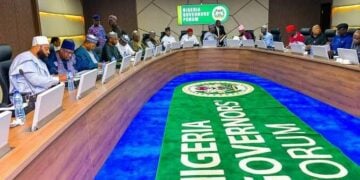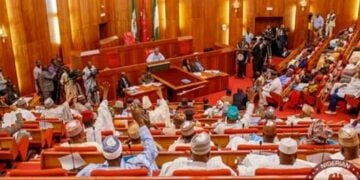A non-governmental organisation under the aegis of the Women Environmental Programme (WEP) has trained over 60 staff of the Benue State Ministry for Water Resources, Environment and Climate Change on ways of mainstreaming gender and climate change in their programmes and policies to address the needs of vulnerable groups.
The executive director of WEP-Nigeria, Anne-Marie Abaagu, in a welcome address, disclosed that the organisation applied for and received grants from Women Engage for a Common Future (WECF) through its Ecofeminist Movement Building Fund to strengthen women’s organisations to advocate for gender mainstreaming in climate policies.
According to her, this grant aimed at strengthening women’s organisations to advocate for climate policies and advance sustainable initiatives.
She said, “The grant focuses on three areas, which include capacity strengthening on gender, climate and sustainable initiatives, advocacy for inclusive climate change policies, and awareness raising on gender and climate change issues.”
Abaagu, who was represented by the Deputy Executive Director WEP John Baaki, further stated that based on the above and to ensure that government agencies integrate climate change and gender issues in their ministries, WEP organised this training for staff of the ministry to bring to their knowledge the need for Climate and Gender mainstreaming.
The director emphasised that the objective of the training is to equip the staff with the pre-requisite knowledge that will help the ministry deliver on its mandate sustainably and inclusively.
Also speaking, the commissioner of the ministry, Ugwu Odoh, who was represented by the covering permanent secretary, Dr Dominic Achioko, said that it is also the desire of Gov. Hyacinth Alia to train the staff to enable them to discharge their duties creditably, stating that the opportunity granted to the ministry by WEP cannot be taken for granted.
Odoh, who advised participants not to take the opportunity for granted, urged them to pay absolute attention to achieve maximum results from the training to enhance their work schedules.
A resource person, Dr Johnson Mage, in his presentation on the topic “How climate change is impacting socioeconomic development of Benue”, said that drought and dry spells have negatively impacted agriculture in Benue.
Mage added that populations and infrastructure were increasing in vulnerability to flooding and flood-related hazards in the state due largely to climate change.
The executive director of the Gender and Environmental Risk Reduction Initiative (GERI), Elizabeth Jeiyol, disclosed that climate change displaced millions of people, leading to informal settlements with poor social services.





